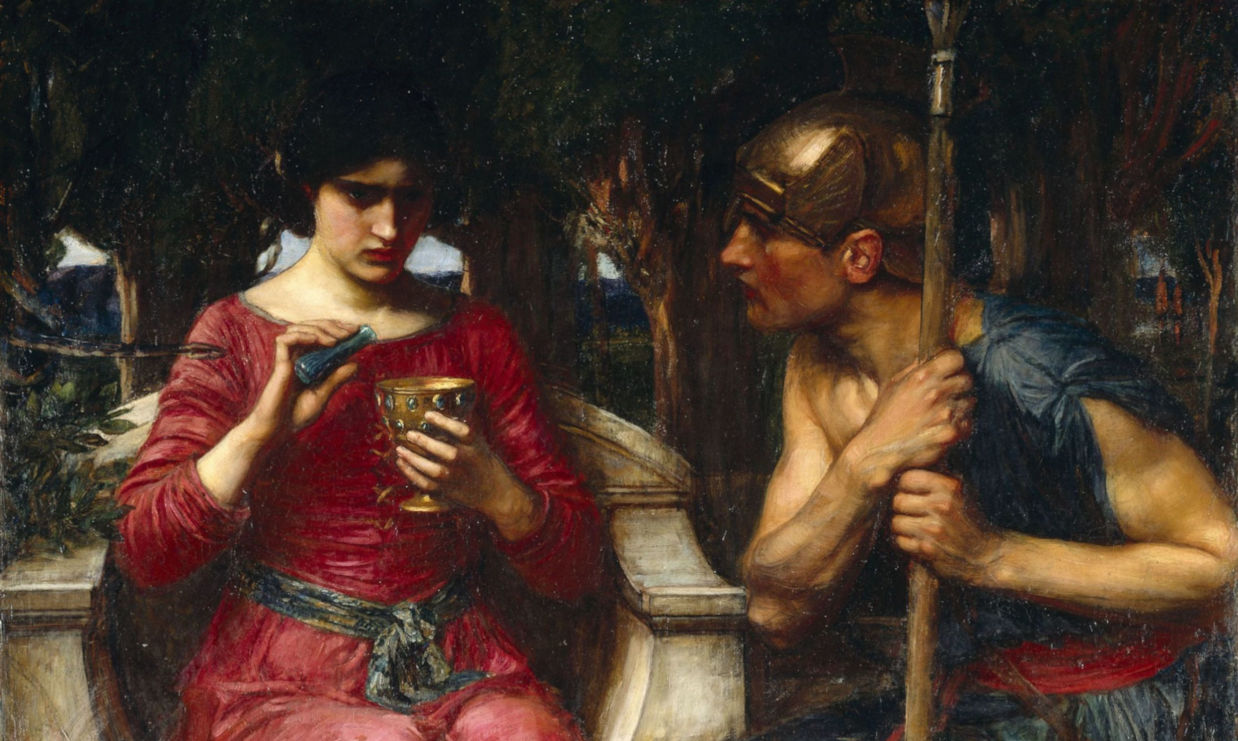

Medea’s nurse laments her mistress’s misfortune, and wishes that she had never met Jason in the first place. She is scared of the ferocity of Medea’s anger. The tutor to Medea’s two sons enters and tells the nurse that there are rumours that Medea will be banished by the King of Colchis, the father of Jason’s new wife. The nurse tells the tutor to keep the boys away from Medea because Medea is dangerous in her grief. Medea is heard from indoors, saying that she hates her children and wants to die.
The chorus ask for Medea to appear outside.
Medea enters and complains that as a woman, a foreigner and a divorcee, her position is unstable and pitiful. She complains about the fact that women must always be reliant on their husbands. Creon, King of Corinth and father of Jason’s new wife, enters and tells Medea that she will be banished from Corinth, effective immediately. He is afraid that Medea will do something bad to his daughter in retaliation, particularly since he knows she is cunning and good at magic. Medea says she is angry with Jason only, and begs to be allowed one more day in Corinth to settle her affairs and say her goodbyes. Creon reluctantly agrees. However, to the chorus Medea reveals that she is determined to ruin Jason’s new marriage, and wants to kill Creon, Jason and his new bride.
The chorus pray that they never succumb to excessive passion or are forced into exile.
The King of Athens, Aegeus, appears. He is troubled because he is unable to have children. Medea makes a deal: she can cure his problem if he allows her refuge in Athens, no matter what crimes she commits. Aegeus agrees, and Medea finally reveals her plans to the chorus: she will pretend to make up with Jason and will send her sons to Creon, supposedly to ask if they can stay in Corinth while their mother is exiled. However, these sons will carry a crown and poisoned robe to Creon’s new wife, and as soon as she wears it she will die. Medea will then kill her two sons. She sees this as the best way to hurt Jason.
The chorus, previously in support of Medea, are now shocked and dismayed that she would kill her own children. They say that she would pollute Athens by taking refuge there after such a crime. They hope that she doesn’t mean her words, and won’t truly be able to kill her children in the end.
Medea acts subservient towards Jason and asks for his forgiveness. She asks him to persuade Creon to allow her children to remain in Corinth, and Jason agrees. Medea hands the boys the crown and the cloak and tells them to give them directly to Jason’s wife.
The chorus grieve for the princess and Medea’s children: their deaths now seem unavoidable.
The tutor arrives with the boys and tells Medea that the princess has received her gifts and Creon allowed the boys to remain in Corinth. Medea hesitates in killing her own children and her will falters, but in the end she remains determined to fulfil her revenge and she takes the boys indoors.
The chorus say that even with the best parents children may still die before their time.
The Chorus beg both the gods and Medea herself to avoid the death of the two children. They hear the boys’ screams and compare Medea to Ino, a mythological queen of Boeotia who, in a fit of madness, jumped off a cliff with her two children.
How can Medea be seen to go against her traditional role in the prologue?
In the prologue, do you feel sympathy for Medea?
Is Creon being fair to Medea in the first episode, or does he abuse his power as King?
What do we learn about Medea’s personality in the first episode?
Does Medea seem to be a hero?
Who has the strongest argument in the second episode: Medea or Jason?
How has Medea’s plan changed by the end of the third episode? Do you think they are significantly more immoral than before? What would the Ancient Greek audience think?
Who emerges victorious from the conflict between Medea and Jason? Is it who you would expect?
Does Medea comply with or rebel against her traditional role of a woman when she refuses to let Jason bury the bodies of their children?